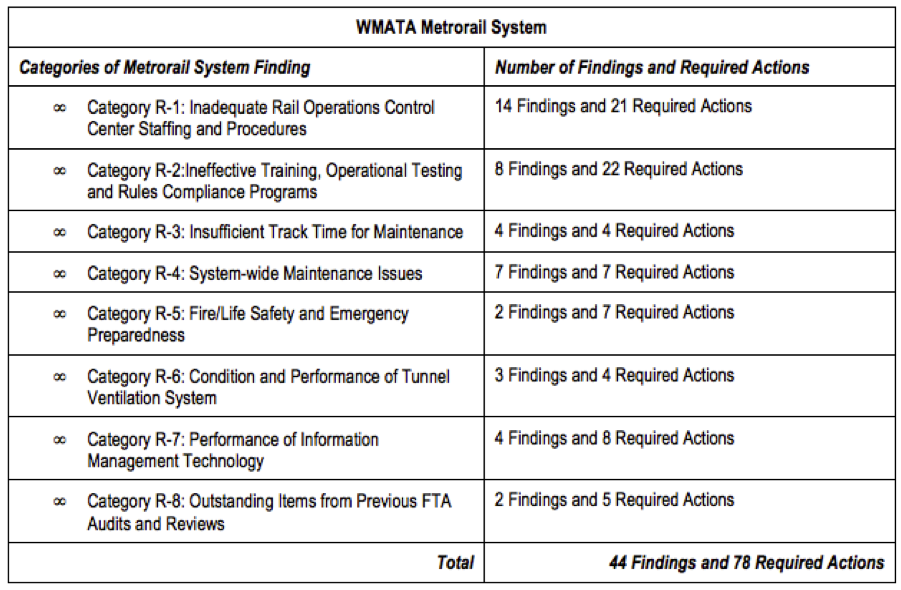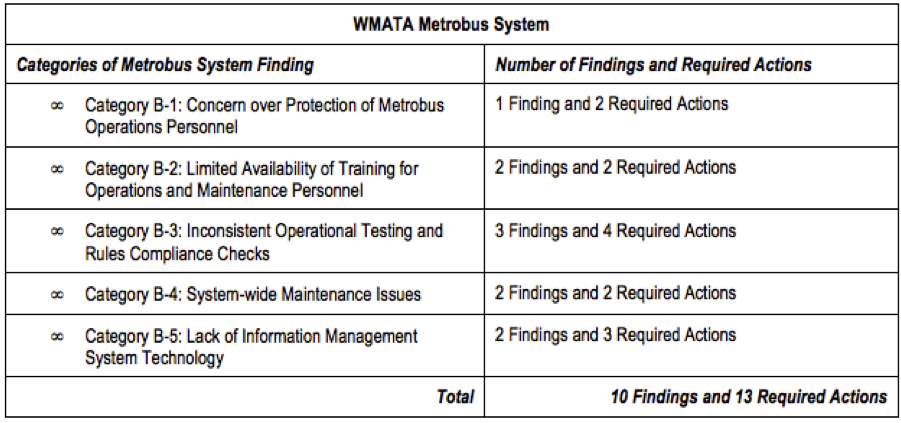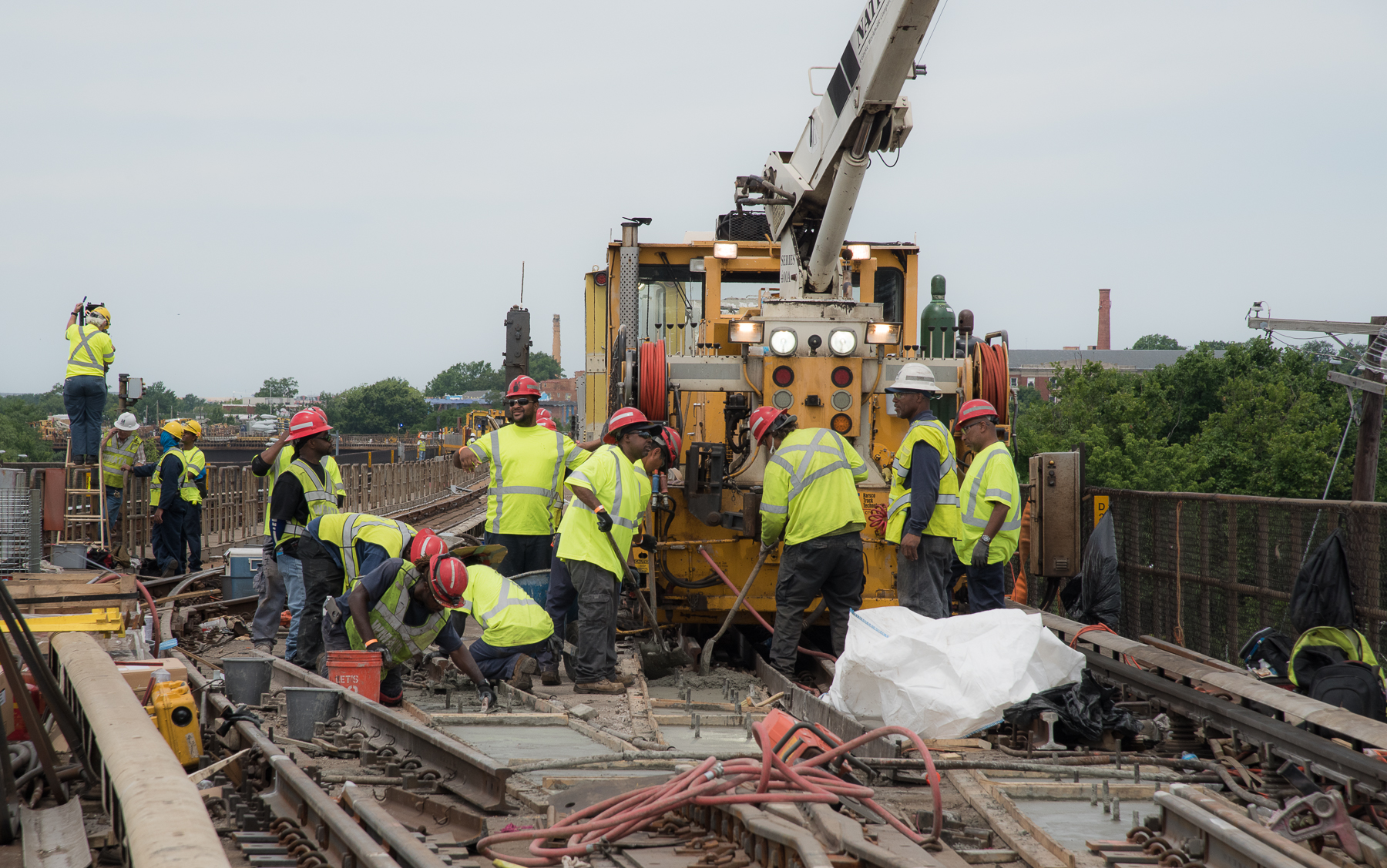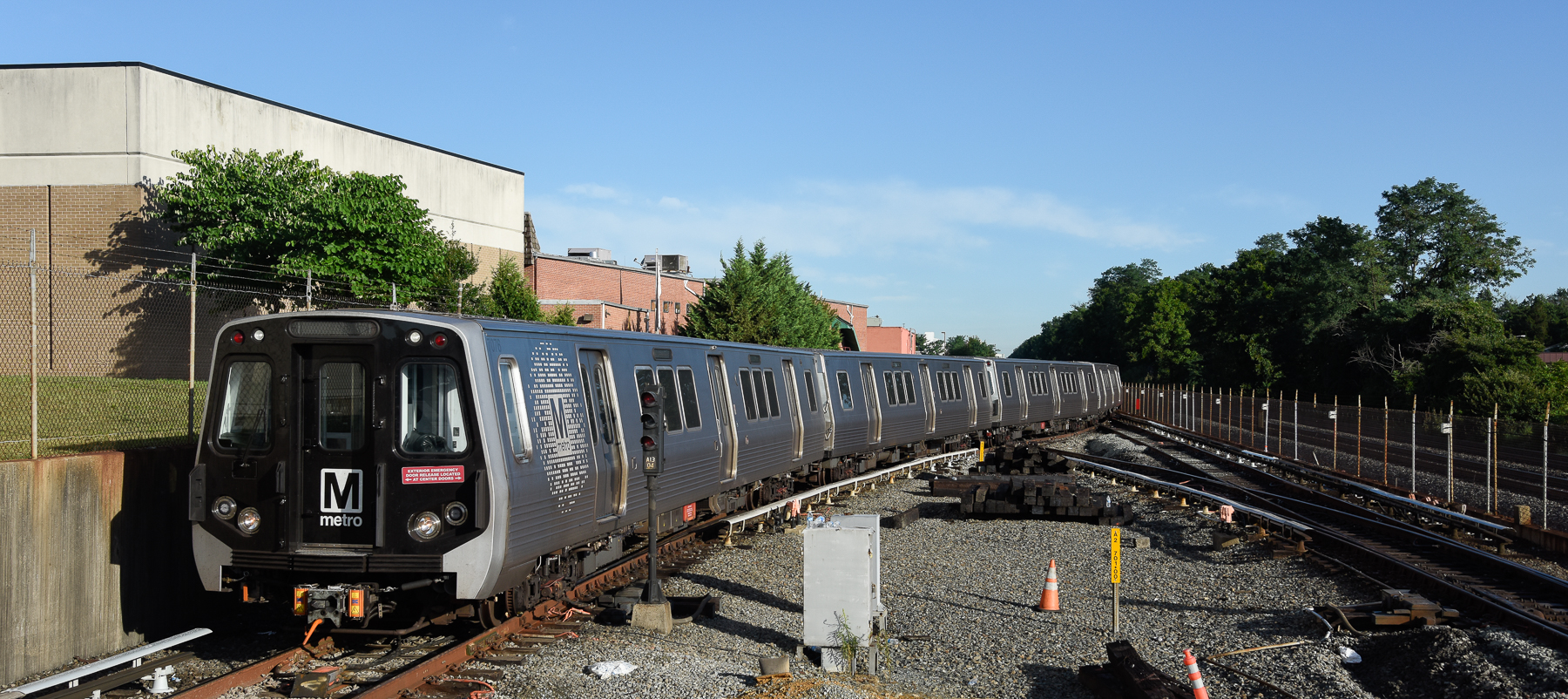February 24, 2017
The embattled Washington Metropolitan Area Transit Authority (WMATA) once again has its back on the ropes as the federal government is withholding funding from Maryland, Virginia, and the District of Columbia due to WMATA’s spotty track record of safety.
At issue: the failure of the three jurisdictions to meet their February 9 deadline to establish a State Safety Oversight Program (SSOP) to ensure the safety of public transit services in the nation’s capital.
On February 10, the Federal Transit Administration (FTA) notified eight transit systems in the District of Columbia, Maryland, and Virginia that it will withhold five percent of fiscal year 2017 transit formula funds until a new SSOP is certified for WMATA’s Metrorail service.
The three states were directed to form a new safety oversight body following a string of highly publicized safety infractions that the existing Tri-State Oversight Committee (TOC) had failed to address, resulting in fatal collisions and other incidents.
The funds, which amount to $8.9 million under the current continuing budget resolution through April 28, will be withheld from the three jurisdictions until they pass identical legislation creating a new safety oversight agency that is federally compliant.

Based on a full-year appropriation, FTA estimates the total amount that could be withheld from the three jurisdictions to be around $15 million if the states fail to establish an SSOP.
The repercussions will be felt well beyond Washington, as the withheld portion of FY17 Urbanized Area formula funds are relied upon by transit agencies in Richmond, Virginia Beach, and Baltimore, among others.
FTA’s crackdown on WMATA began in early 2015 after an electrical arcing incident forced a train to stop outside of L’Enfant Plaza, filling cars with smoke. This resulted in the death of one passenger in addition to injuries and respiratory harm to 80 others.
What followed was a string of federal investigations, inaction from state legislatures, and then-Transportation Secretary Anthony Foxx’s pivotal decision to lead the agency to safety with the stick rather than the carrot.
Immediately after the January 2015 episode, FTA launched a Safety Management Inspection of WMATA rail and bus transit. The final report found that WMATA was “not effectively balancing safety-critical operations and maintenance activities with the demand for passenger service.”
As a result, FTA issued 44 safety findings and identified 78 corrective actions for Metrorail to complete across 8 categories:

While FTA did not find as many serious issues for WMATA’s Metrobus service compared to its rail counterpart, the agency identified 13 required actions and 10 findings. Among them were unmet training needs, insufficient documentation of daily operations, and informality in bus radio communications.

In July 2015, former Secretary Foxx pushed Virginia, Maryland, and D.C. to create a new State Safety Oversight Program to oversee WMATA’s completion of the required actions outlined by FTA. The issue with the Tri-State Oversight Committee, Foxx argued, was that it lacked enforcement capabilities – amounting to the archetypal toothless agency.
Yet the legislatures of Maryland, Virginia, and D.C. stumbled in their efforts to create a new oversight body, compelling an exasperated Foxx to take action in October 2015.
Foxx ordered FTA to temporarily assume direct responsibility for safety oversight of Metrorail. This reduced the Tri-State Oversight Committee’s role to “conduct a baseline level of safety oversight” until the three jurisdictions established a compliant oversight agency, in accordance with FTA Safety Directive No. 16-1.
FTA began conducting inspections of Metrorail that winter to ensure safe daily operations and oversee maintenance efforts. Meanwhile, Foxx continued to pressure the three jurisdictions to expedite creation of a new oversight agency.
Finally, on February 8, 2016, FTA set a one-year deadline for Virginia, Maryland, and D.C. to create a State Safety Oversight Program. FTA threatened to withhold federal transit funds if they did not comply.
WMATA initiated an accelerated work plan, dubbed SafeTrack, in July 2016. The SafeTrack plan compresses three years of repairs and maintenance into one year by expanding weeknight and weekend maintenance. This includes 16 “Safety Surges,” including extended track outages in order to complete major projects.
Meanwhile, the three jurisdictions have been scrambling to create their new oversight body in order to avoid statewide political fallout over the withheld funds. The District of Columbia has already passed the necessary legislation, with Maryland and Virginia following closely behind.
The situation is becoming more and more dire for the beleaguered transit agency. Paul Wiedefeld, its general manager, told reporters on Wednesday that he is currently trimming 1,000 workers from the agency and right-sizing service in response to declining ridership.
Metro expects its shortfall for fares and parking revenue for this fiscal year to be around $125 million. Next year, it will more than double to $290 million.
“I have looked under every rock I can to find dollars but there is not a whole lot more to go to,” Wiedefeld told WAMU.









